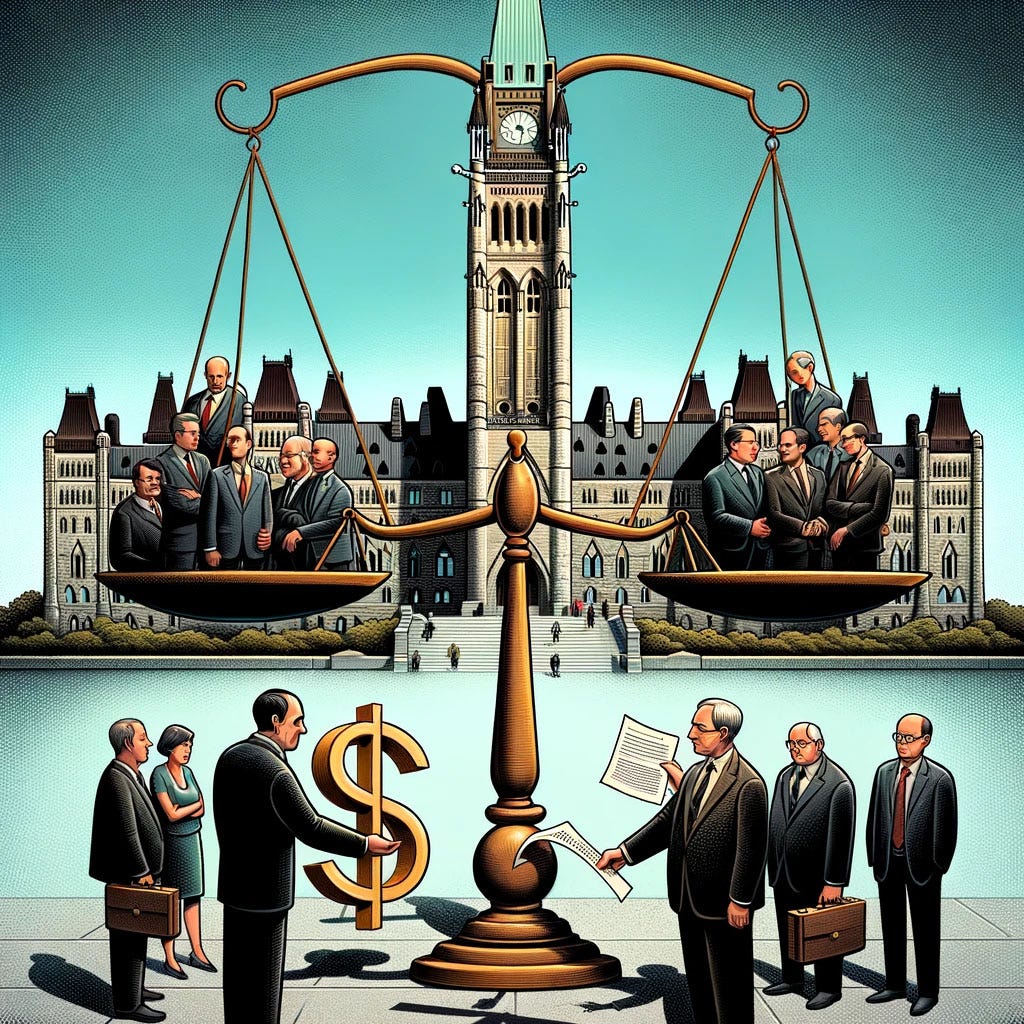News about government corruption caught my eye yesterday. Not because there is corruption in the federal bureaucracy, though it seems to be widely the case. Readers might remember when CRA discovered hundreds of its employees collecting CERB during the COVID restrictions and ended up firing nearly 200 of them. But there is corruption in every human institution. The feds don’t have a monopoly.

The Ottawa Citizen reported that 3 employees in the Auditor General’s office have been drawing income from side contracts with the federal government, very much in the news style that we have seen prominently in the ArriveCan federal scandal. The Auditor General is tasked with investigating corruption such as that. In that sense, it is a problem greater than if it just happened in any other government department.
Justin Trudeau has enlarged the federal bureaucracy by nearly 40 per cent since forming the government. More shenanigans are likely going on in the bureaucracy because there are so many more bureaucrats. And once people see a problem somewhere they become more sensitive to seeing it elsewhere, namely the issue of the employees getting contracts on the side.
That being the problem, what should be the solution?
We should not be surprised but it rarely fails that in this country the proposed solution to every problem in government and every problem in the bureaucracy seems to be to hire more bureaucrats (or spend more money, which in most cases amounts to the same thing).
Besides the obvious paradox, if not a full contradiction, some seem to be saying that the enlargement of the federal bureaucracy has created the need to install investigative units of bureaucrats in each bureaucratic agency and department. See the suggestion here: “…each department and agency could have a team whose job is to randomly pick certain public servants to be “audited,” which could include a review of their expense reports and verifying that they don’t have undeclared secondary sources of income.”
Corruption cannot be eradicated from the human condition, and as such it is not going to be wiped out of our institutions. As David Hume, the Scottish Enlightenment philosopher, pointed out, the attempt to erase corruption will yield tyranny. So best to try to deal with the corruption you have when it pops up rather than try to eradicate it. Some corruption needs to be tolerated for the sake of liberty.
And that is why the Office of the Auditor General audits so that these sorts of things are discovered when they are taking place, not before. A bureaucrat police to prevent corruption inside the bureaucracy would have to be large and it would be enormously disruptive, inefficient and hugely costly in monetary and human resources.
But, it remains that when the Auditor General is a reasonable solution to the problem, what does one do when the problem arises amid those who are providing the solution?
I am not sure I know what the best solution is, but intuitively, it seems wrong to go for the easy hiring of more bureaucrats to police bureaucrats. Especially since the appearance of the same corruption the Auditor General fights is already in the Auditor General’s office. In other words, if there were new branches of police bureaucrats in every government department and agency, they too would be subject to the same temptations —and then who would police them when they go astray? Who guards the guardians? Who will randomly pick and audit the auditing teams a year later or whenever such problems arise among them? And these problems likely will arise unless the problem at the source remains.
That leaves us with the logic of an ever-expanding bureaucracy.
To read the rest of this column and all other Institute research, please join our Substack List.


Share Your Thoughts